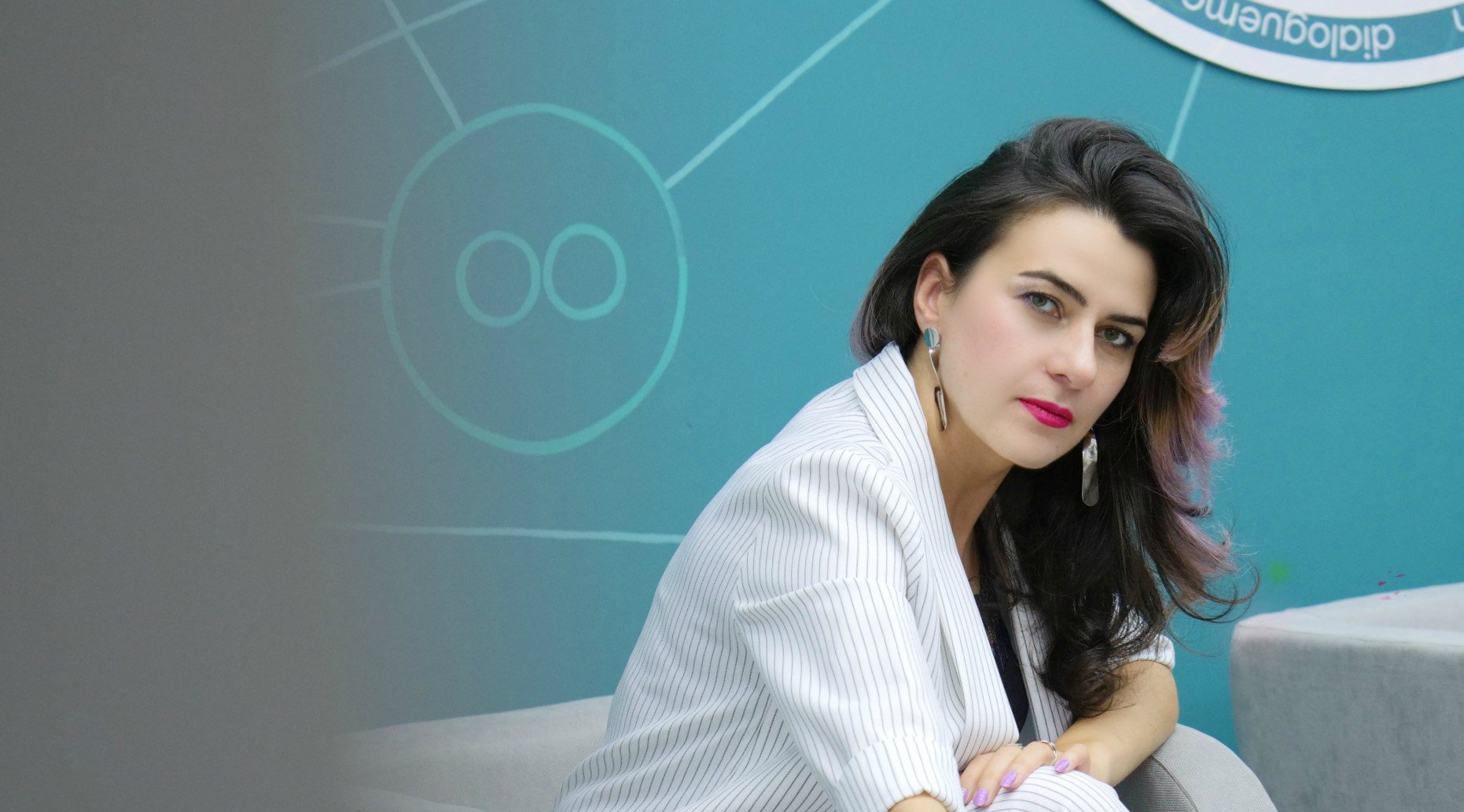I went to Artsakh for the first time in the summer of 2018. For a woman (girl) who does not have a brother who has served in the RA Army, everything is new, from the trench to weapons and military order. No matter how much you have seen and heard from movies or training classes, in reality, when you find yourself in a trench, you realize the value of fragile peace.
The road to Jrakan (Jabrail) in August 2018 was long, the temperature above 40 degrees Celsius and dust clouds made our journey difficult and tiring. We arrived. We were just journalists. We were greeted in the military unit, the officers presented some information to us, they also showed the traces of April 2016.
We went up to the positions. I was in military clothes, but I also wanted to feel how the soldier at the base was getting ready and standing on duty.
They also allowed us to wear body armor and carry all the weapons that soldiers carry in the positions when on duty. I’m not that small, but my shoulders trembled under that weight: armor, weapons, bullets, grenades, and a helmet. In addition to the weight, the heat and the dry air were suffocating me. I was able to endure for a few minutes, but our boys stand firm like that when on combat duty. That day I also felt the coldness of the grenade in my hands and the imminence of death.
When I looked at the position of the enemy not far away from a small point of view in the trench and directed my steps to the other point of view, suddenly someone’s hand snapped me out of it․․․
“Take it,” the soldier on duty handed me a piece of candy.
I can hardly describe my feelings at that moment. They were mixed with feelings of care and gratitude, how our 18-year-olds ensure my and our peace in such difficult conditions.
As far as I remember, he was from Ashtarak, he had 10 months left to demobilize. We talked about service, difficulties and losses. He used binoculars to show the positions lost during the 2016 four-day war.
– You know how many boys were killed here, and now they are shooting as if it is peaceful, oh, those positions were ours, now it is theirs. It was safer and more secure in those positions. Now they are higher than us and it is easy to shoot at us. You have to be attentive, you also have to be careful not to go that way.
At that moment, I remembered the assurances of some officials that the lands lost during the 2016 Four-Day War were useless. Perhaps the usability of the land would be considered useless from the point of view of use, because it was more desert red soil, although, in my opinion, the land at the border is not measured by that criterion. And the very words of the soldier were proof of how important those lands that were considered useless actually were, because they were positions, areas of certain security and life-saving.
As a journalist covering various topics related to the border areas, only then did I feel the gunpowder air reaching my palate, the fragility of peace and the high value of the security provided by our 18-year-olds.
You insatiably try to perceive everything, to see how the cameras on the border monitor the situation, and in a small hut the military shows the changes in the enemy’s positions, which seem insignificant to me, but in fact important, and when you see from the point of view how close the positions are, some feelings of safety and security recede.
When you return, you compare what you have seen and heard, analyze, and draw conclusions. And you understand why the car was gaining momentum and speeding near the small oasis of the road stretching from the positions to the military unit. You remember the important things from the conversations with the soldiers and you need to acquire as much knowledge and skill as most of us journalists lack.
Theoretical, logical and cold judgments about conflicts alone are definitely not enough not only to cover but also to take care of one’s own physical safety. Since the language of weapons is different, the price of war and peace is very expensive in the trench.
PS. I also kept the candy given by the soldier, it is in my military uniform pocket. It was a very subtle and careful warning that I would always remember being in the trench.
Anahit Harutyunyan
journalist






